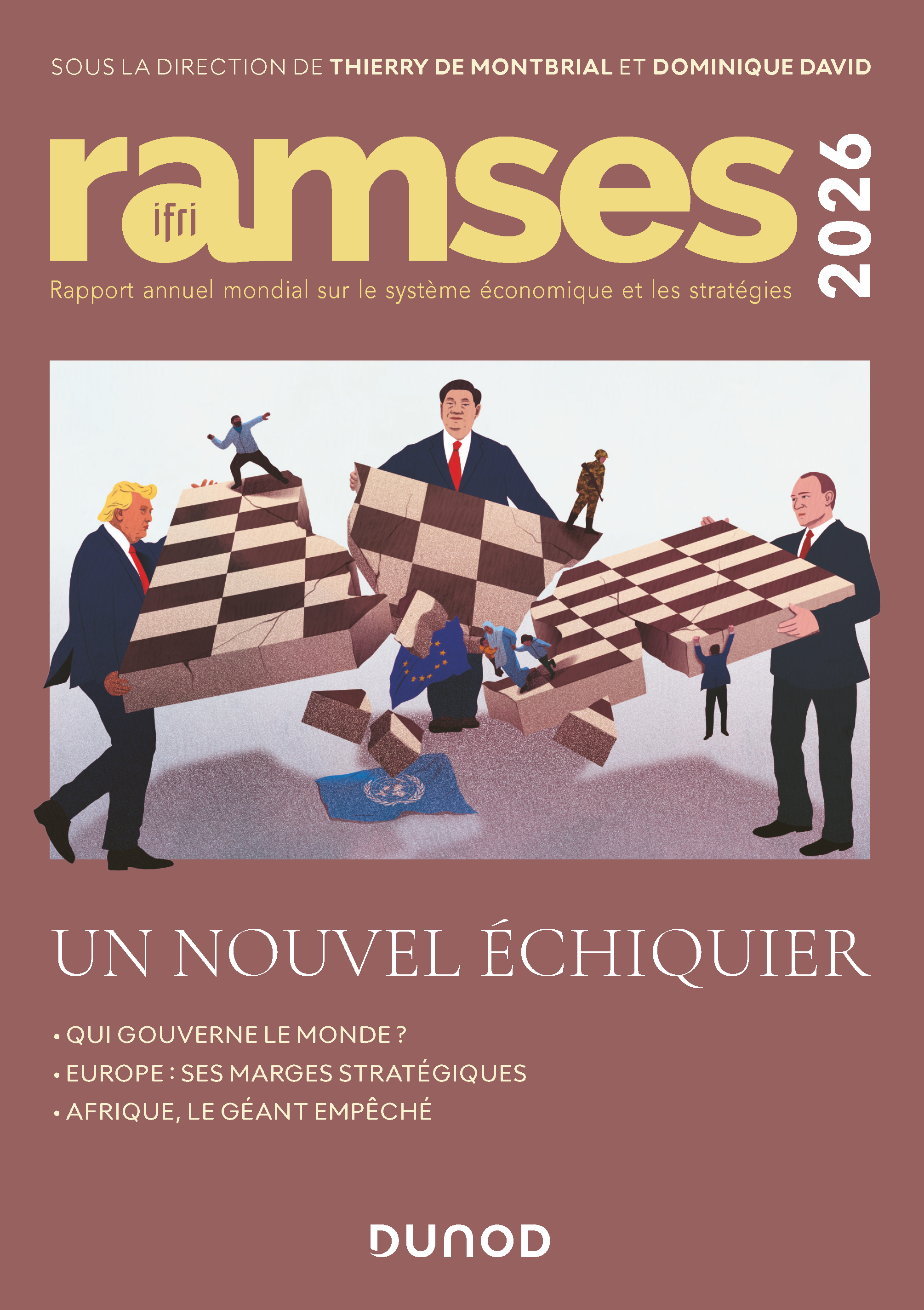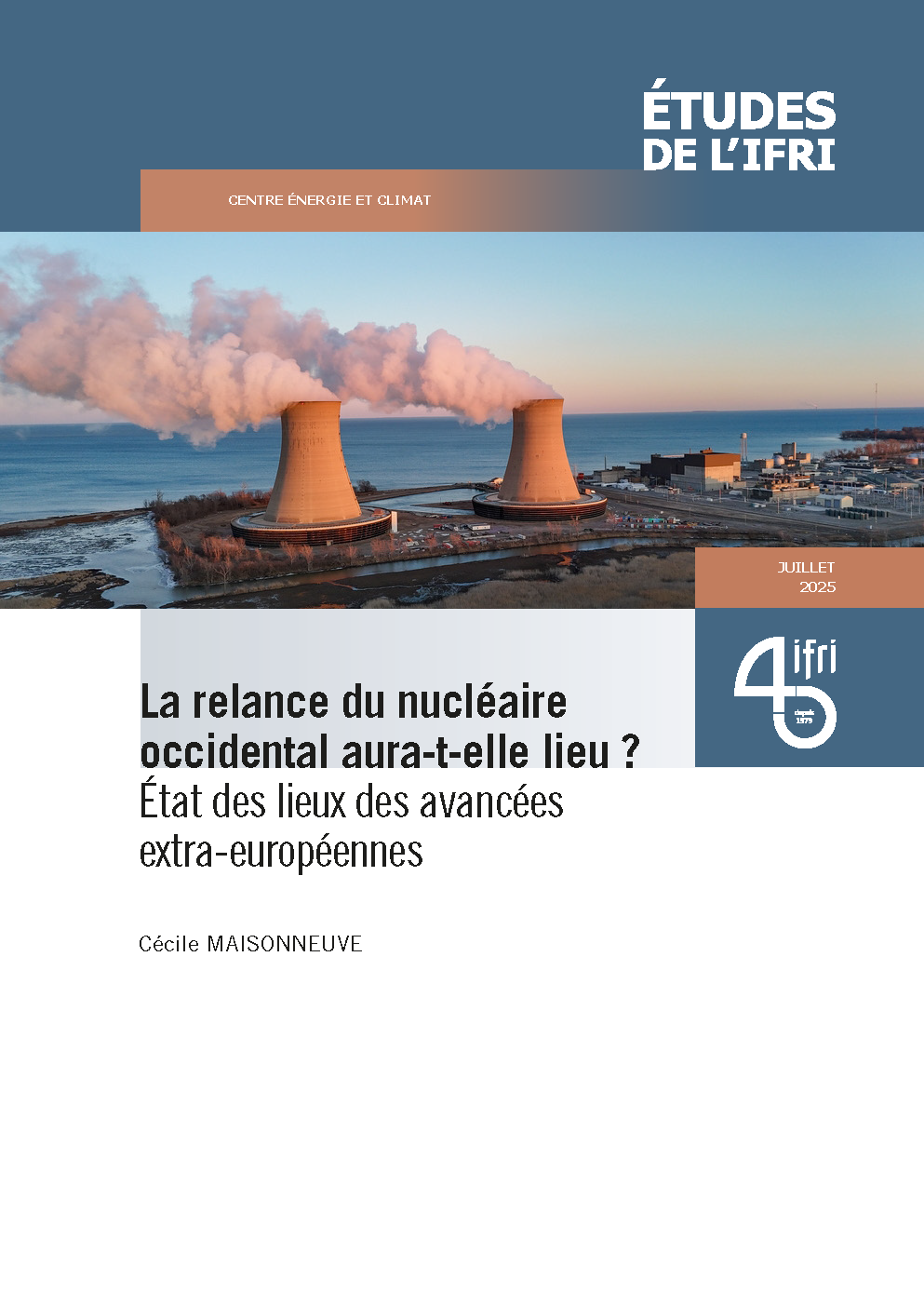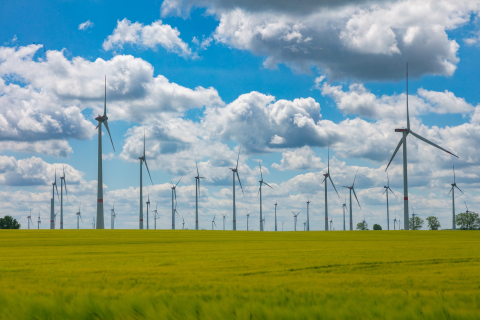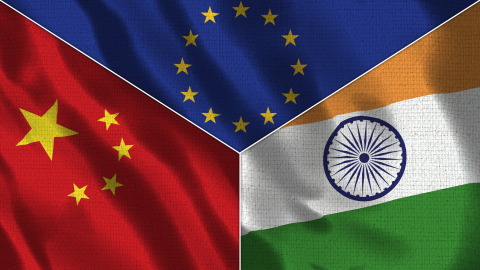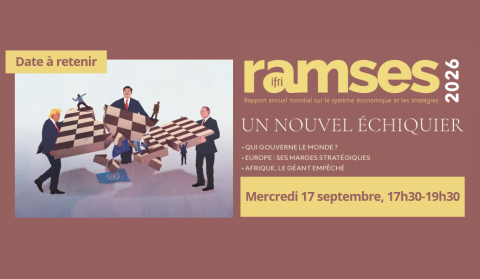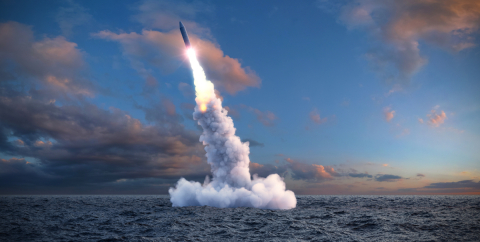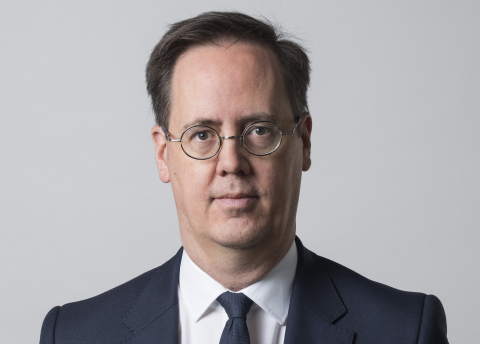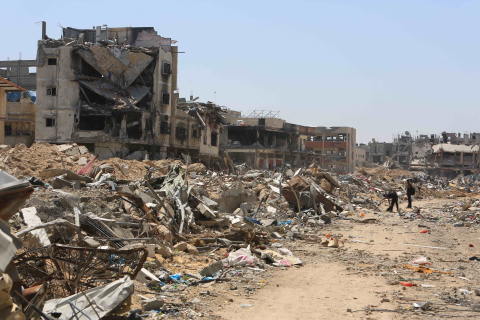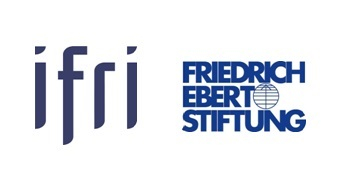
Informations pratiques
Centres et programmes liés
Ceci est un événement réservé.
En savoir plus sur nos programmes de soutienThe deep crisis in relations between the European Union and the Russian Federation has raised fundamental questions about the EU’s policy towards its eastern neighbours. 2014/15 is likely to come to be seen as a critical juncture in the relations between the EU, the Russian Federation and the countries of the Eastern Partnership.
The Friedrich-Ebert-Stiftung (FES) and the Study Committee on French-German Relations (Cerfa) of the French Institute of International Relations (Ifri) are hosting an expert workshop that aims to discuss what policy options France, Germany and their European partners should consider to define their common interests and shape the EU's future policy.
The discussion will be based on a new report published by the Friedrich-Ebert-Stiftung on “Europe and the East in 2030”. The report was based on three workshops in which a group of experts identified the driving forces that shape the relationship and discussed four possible future trajectories for the EU's relationship with its eastern neighbors. We will present the four scenarios and discuss how the EU can make the more positive scenarios more likely and prevent the more negative scenarios from becoming reality.
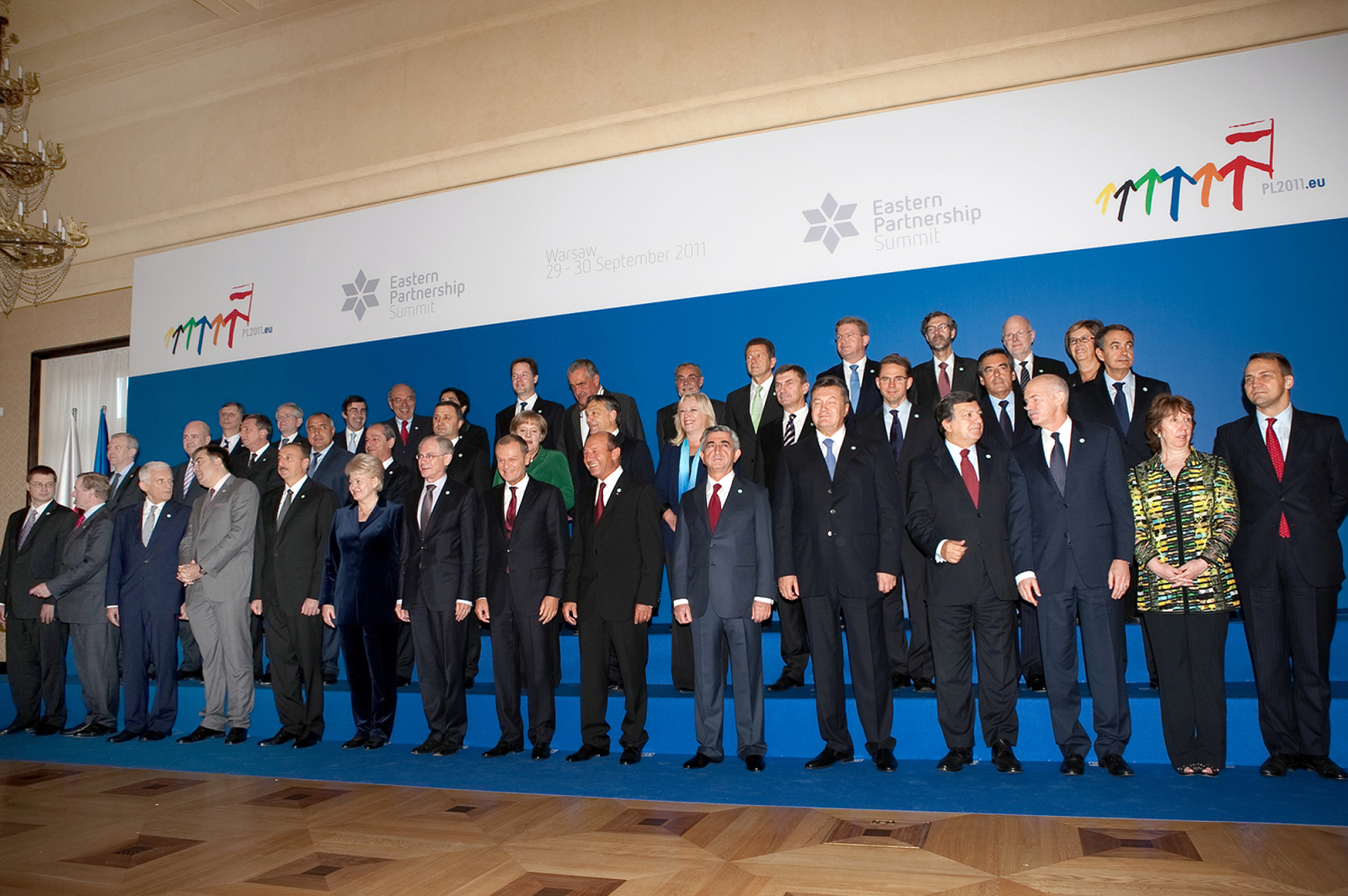
Presentation of Scenarios
- Ireneusz Bil (Poland), Director of the Aleksander Kwaśniewski Foundation Amicus Europae, Warsaw
- Hans Kundnani (UK), Research Director, European Council on Foreign Relations (ECFR), Berlin
- Florence Mardirossian (France), Co-Founder of Geopole Europe, Paris
- Dmytro Ostroushko (Ukraine), Head of International Department of the Gorshenin-Institut, Kyiv
- Dmitry Suslov (Russia), Deputy Director of the Center for Comprehensive European and International Studies at the Higher School of Economics, Moscow
What follows? Policy Implications of the Scenarios for the EU
Barbara Kunz (France), Research fellow, Study Committee on French-German Relations (Cerfa), French Institute of International Relations (Ifri), Paris
Debate
Participation only by invitation
Autres événements
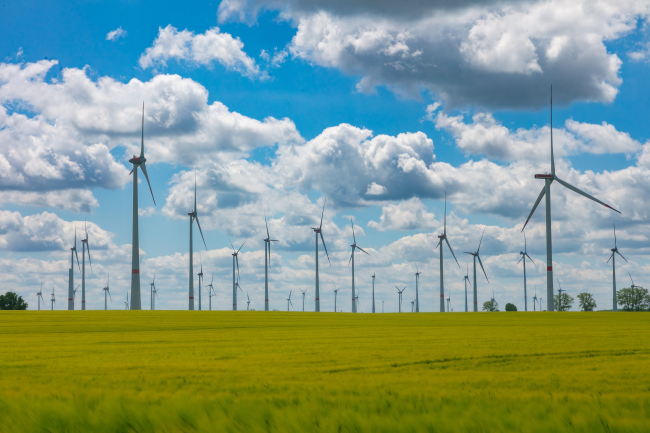
Cycle « Ce qui fait bouger l’Allemagne » - Quel avenir pour la transition énergétique ?
Avec l’arrivée du nouveau gouvernement fédéral allemand et le passage des Verts dans l’opposition, la question de l’avenir de la transition écologique se pose. Celle-ci doit concilier compétitivité industrielle, emploi et cohésion sociale, et constitue une opportunité de modernisation des infrastructures énergétiques tout en réduisant la dépendance aux énergies fossiles.
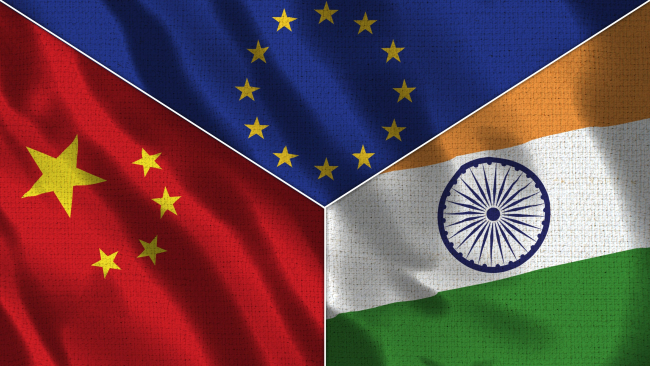
La reconfiguration du triangle Europe-Inde-Chine à l’aune de l’administration Trump 2
Un déjeuner-débat autour de Sylvia Malinbaum, chercheuse et responsable de la recherche sur l'Inde et l'Asie du Sud au Centre Asie de l'Ifri et
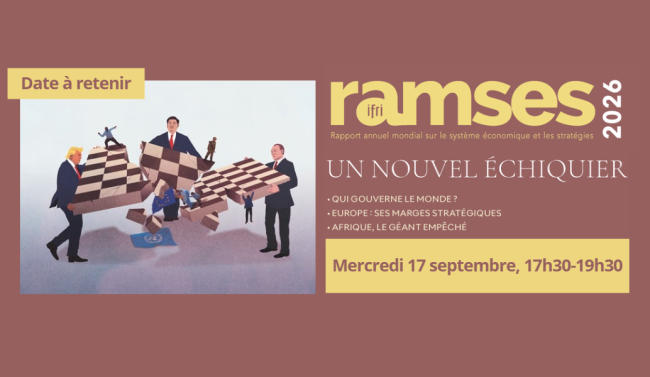
Un nouvel échiquier. Présentation du Ramses 2026
Un échiquier mondial haché par les vertiges de puissance. Un spectre hante le monde : la fragmentation - après des décennies chantant l'ouverture et l'unification sous le signe du progrès technique et de l'accélération des échanges. On passerait ainsi d'un espace mondialisé à un espace haché, émietté en égoïsmes nationaux, intérêts égoïstes insoucieux des autres, effaçant au passage l'espoir d'une gouvernance faisant écho aux intérêts communs d'une humanité unie.


